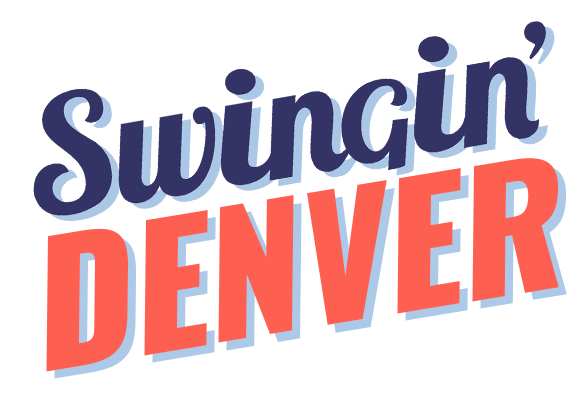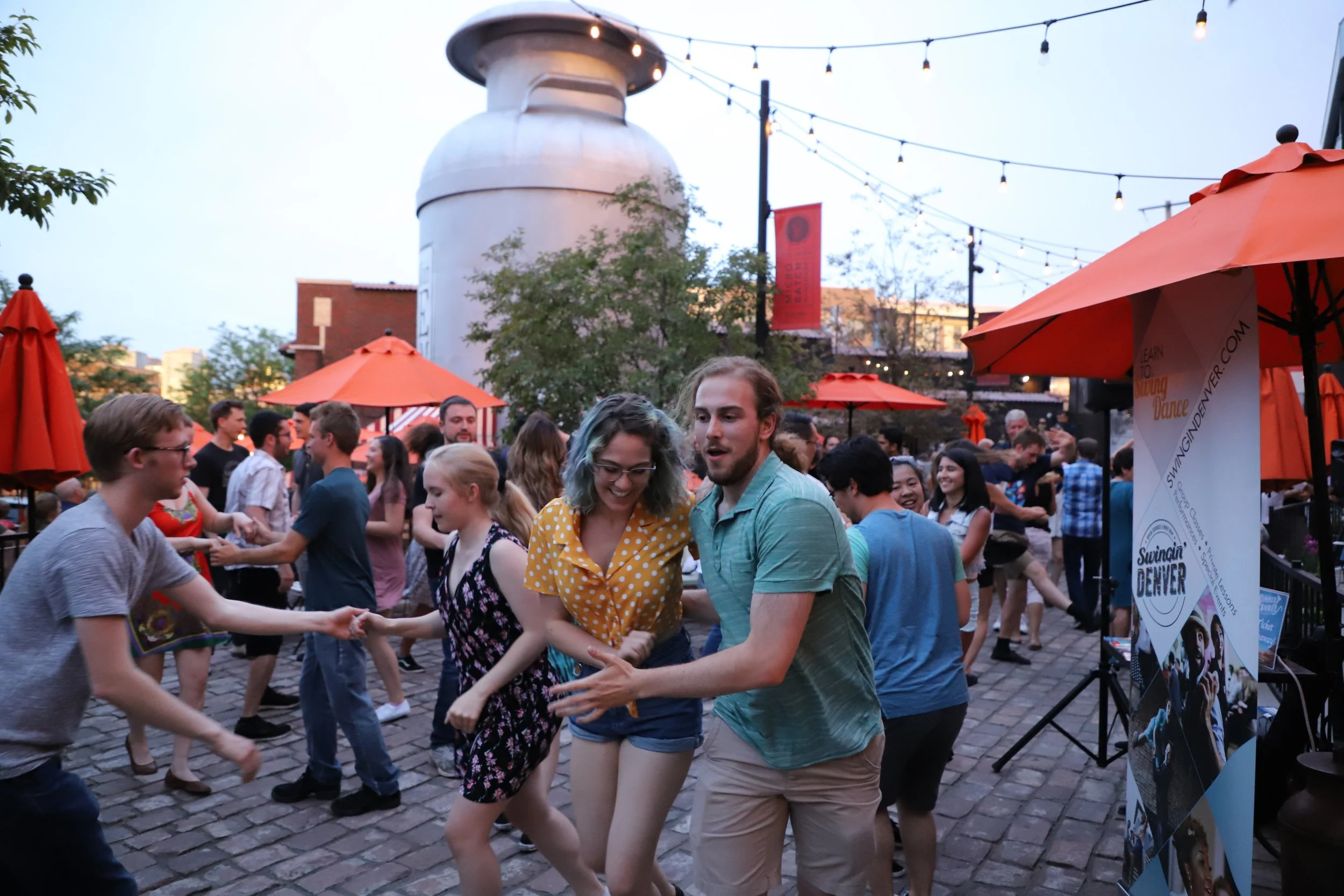This morning I asked my son to point where the past is and he pointed behind him. As to where the future is, it’s in front of him. In the book, A Myriad of Tongues by Caleb Everett, we learn that the USA is WEIRD or Western, educated, industrialized, rich and democratic which makes us weird “when contrasted to the bulk of human societies that exist or ever have existed.” Chapter 1, titled “Your Future Is behind You,” explores the many ways cultures judge time and tense.
But why talk about time? For the past few years, I’ve seen an increase in how Lindy Hoppers and West Coast Swing dancers market themselves. One is past or vintage and the other is modern. Can you guess which is which? For me, both dances are quintessentially of the present though confusion typically arises when a swing dancer inevitably states they “swing dance,” the person asking jumps to a conclusion and the swing dancer might experience frustration. I’ve gotten around the confusion by using the given name of the dance and, if I sense the need for futher explanation, provide that “I dance Lindy Hop, a dance created by Black Americans in the 1920s still danced today to swing music” or “I dance West Coast Swing, a partner dance danced to Top 40/Billboard charted music.” If it comes to it, I might even do a brief dance demo as a means of explaining as their baseline grooves are aesthetically different.
To quote Moncell Durden - “The name of the dance is lindy hop. The name of the dance is not swing dancing. Swing dancing is what you're doing. You're swinging to the swing band.” In other words, be specific and name the dance. Moncell, in The History of Line Dances, formerly on YouTube, also states “There is such a level of erasure when calling it swing dance or jitterbug and you’re doing such a disservice.”
On the subject of erasure, there is a potential for harm caused by labeling Black dances “past” or “vintage.” On pages 80-81 of Fear of Black Consciousness by Lewis R Gordon, Lewis writes -
“Another concept demanding illumination in the study of race is ‘modern.’ The term is so equated with being European and white that it is rarely defined otherwise. If, however, the modern belongs to now or the present, how, then, could those moments of the past belong to the present? Shouldn’t they be, in relation to us, ancient?
No people have reason to question their belonging to the present unless their legitimacy is challenged, as by conquest or colonization. If a group is promised no future, its present is jeopardized, and belonging becomes a feature of its past”
If we use labels such as these on continually practiced Black social dances like the partnered Lindy Hop or the solo Suzy Q that have been transformed over the years, are we saying the Black creators only belong or matter at the time of origin or mass adoption by white populations?
Let’s also reflect on excerpts from Marie N’Diaye’s paper, Rhythmic Resilience: An exploration of the African American Lindy Hop Community in New York City, USA:
She (Mickey Davidson) also explained that as the originators are transitioning, new “elders” from the global scene (which I understood as the ‘new heirs’) started to take more space and present their version of the story. A story which seems to ignore the young Black dancers present in the scene at the time
Mama Amaniyea was next to answer and seemed surprised at the term ‘Dark Age’, about this period of time she stated that “it was very lit to us, you know, we never stopped” and that in Baltimore “jazz continued, Big Bands continued. We had Hand Dancing here”. When it came to learning to partner dance she explained “we didn't go to school for stuff like that”. Dancing was something “you did in your living room, or the backyard, or the Black community you live in, wasn't in schools during that time.”
“Just because it got off of mass media, they think that everybody stopped. And we, we would [dance] in places where other people didn't want to come into those neighbourhoods because they were scared. But that's where, our light has always been. You can have a dance at a church, at all of the different social clubs that were in our Black community. Everybody danced, even when Frankie retired from the post office, the postal workers used to give some slamming parties, him and Scotty. And you know, and when we got to a certain point, we got invited to some of those parties. But that's what cultural art is.” Ms Mickey
Again from Amaniyea Payne in an interview with Sugarloaf Stomp where she also asked “who do you suppose kept the lights on” for Norma and Frankie to return to. :
“It was our golden age because we were working with the greats. It was being fed spirit and knowledge and humanity all at once”.
I think, rather than plucking these dances from the past and labeling them as such, we join in the continuum acknowledging their long-standing traditions having kept the “lights” on. And, if you’re a guest within the culture like me, you use language that speaks to the Black practioners’ experience. Let’s end on what Rennie Harris, Co-Director of Hip-Hop Studies at CU Boulder, shares here:
The origins of Street Dance are embedded in the social and political histories of marginalized communities. It is a testament to resilience and ingenuity that, without the support of mainstream institutions, communities crafted expressive dance forms to articulate their lived experiences. The term “Street Dance,” is a euphemism for community dance; specifically, it refers not to movement on physical streets but to the neighborhoods and social spaces in which these styles developed. Take note that when referring to the streets, its in reference to the community or neighborhood, not the actual street. This linguistic framing underscores Street Dance’s role as an embodied cultural archive—an enduring repository of Black and Brown histories, struggles, joys, and resistance.

